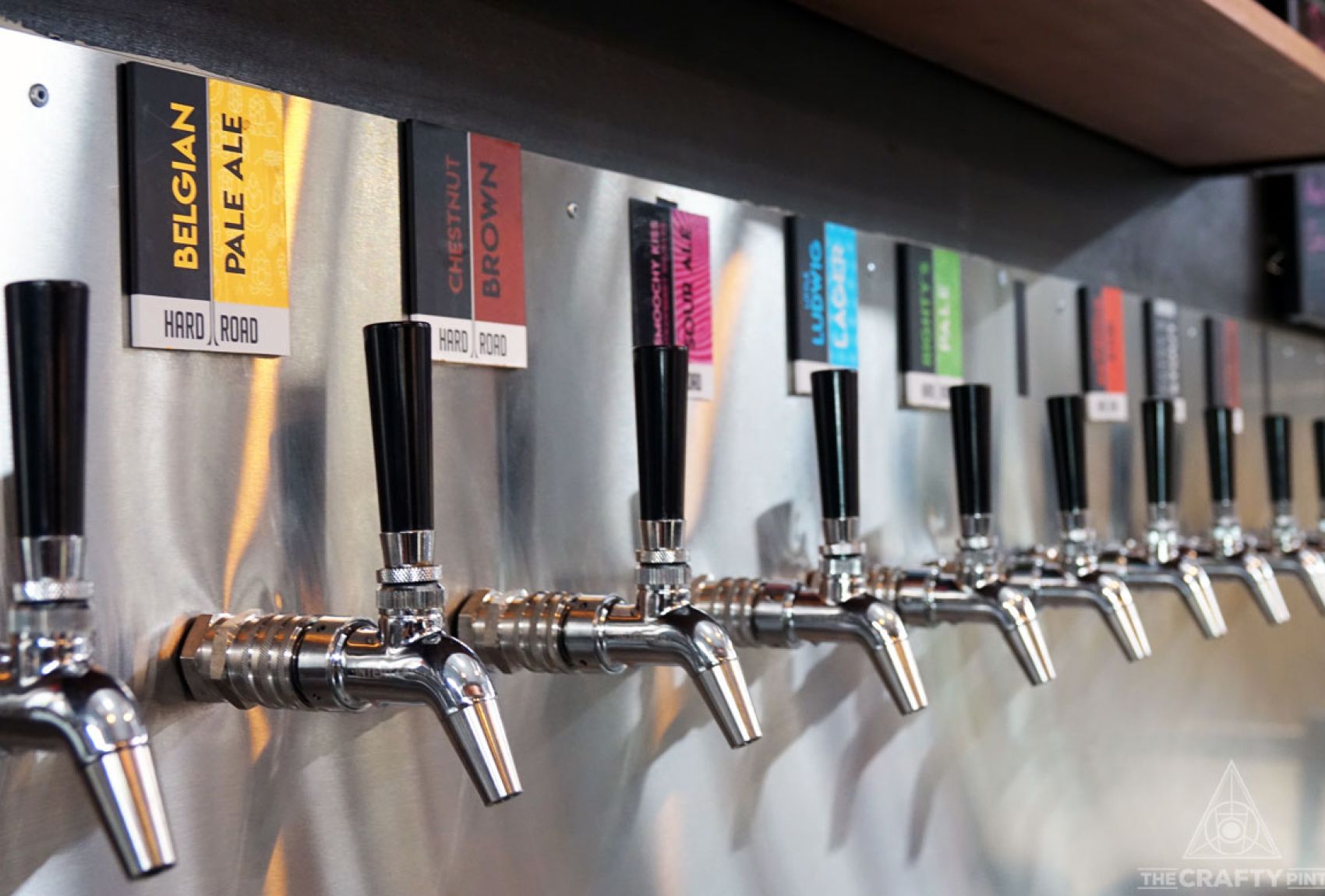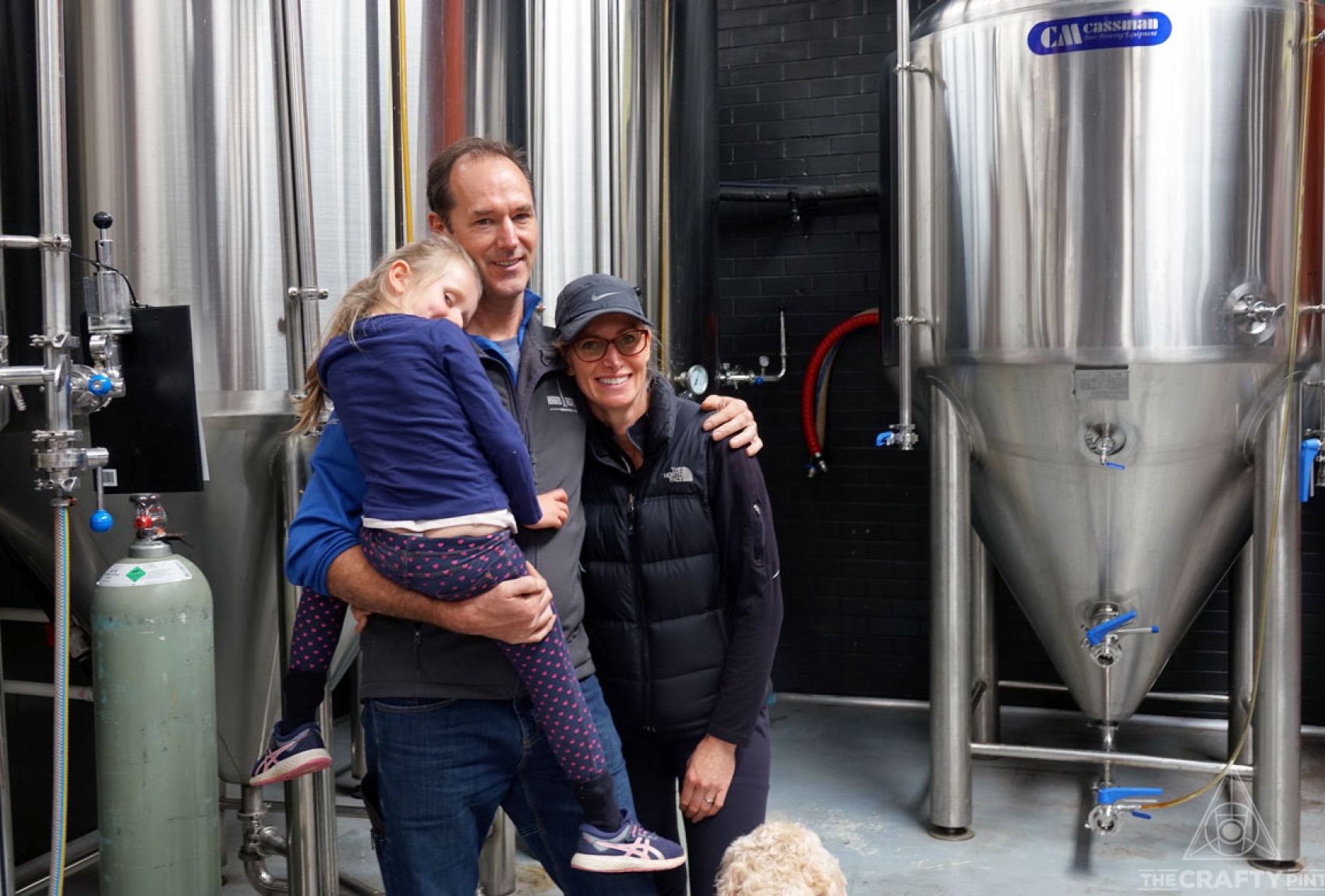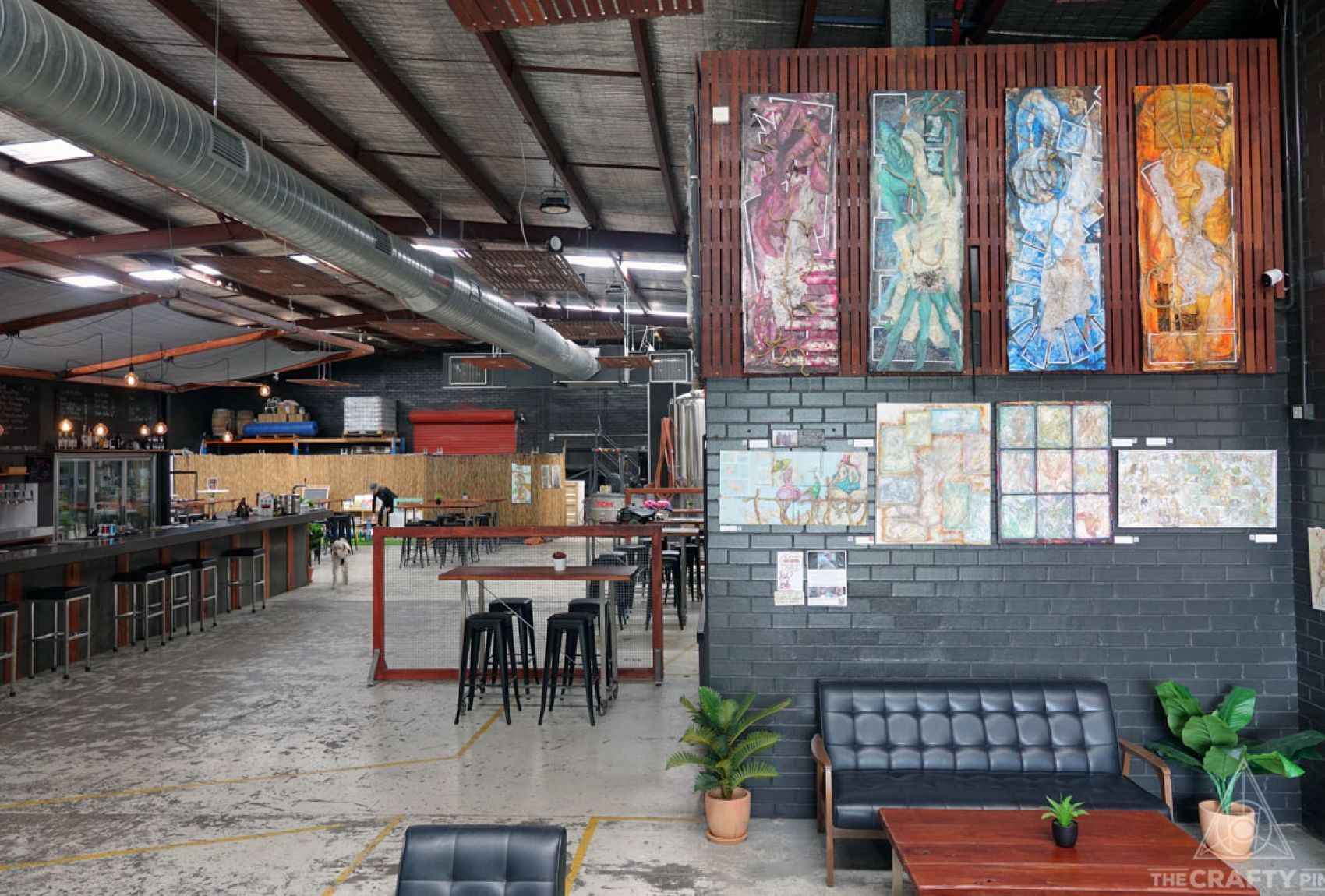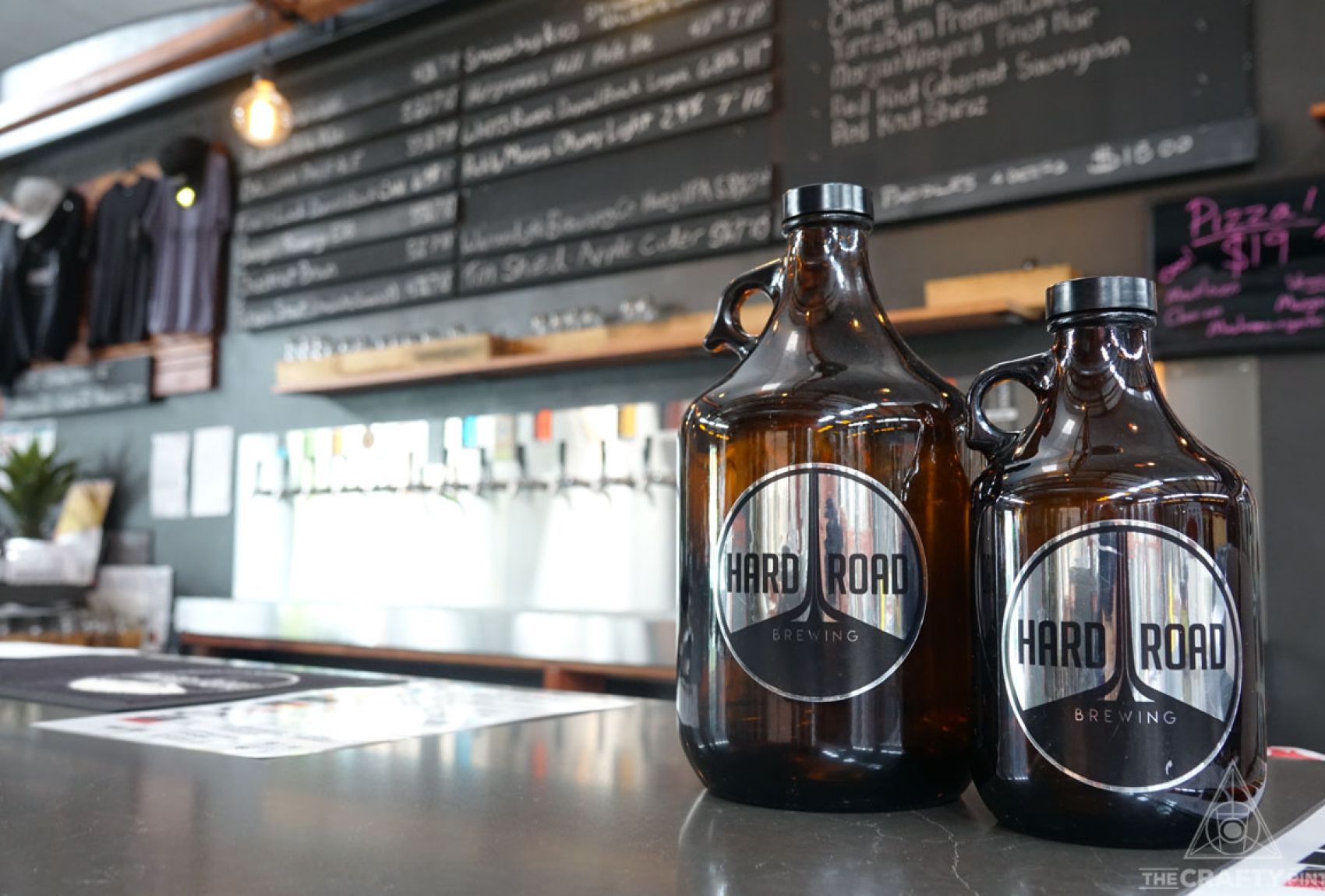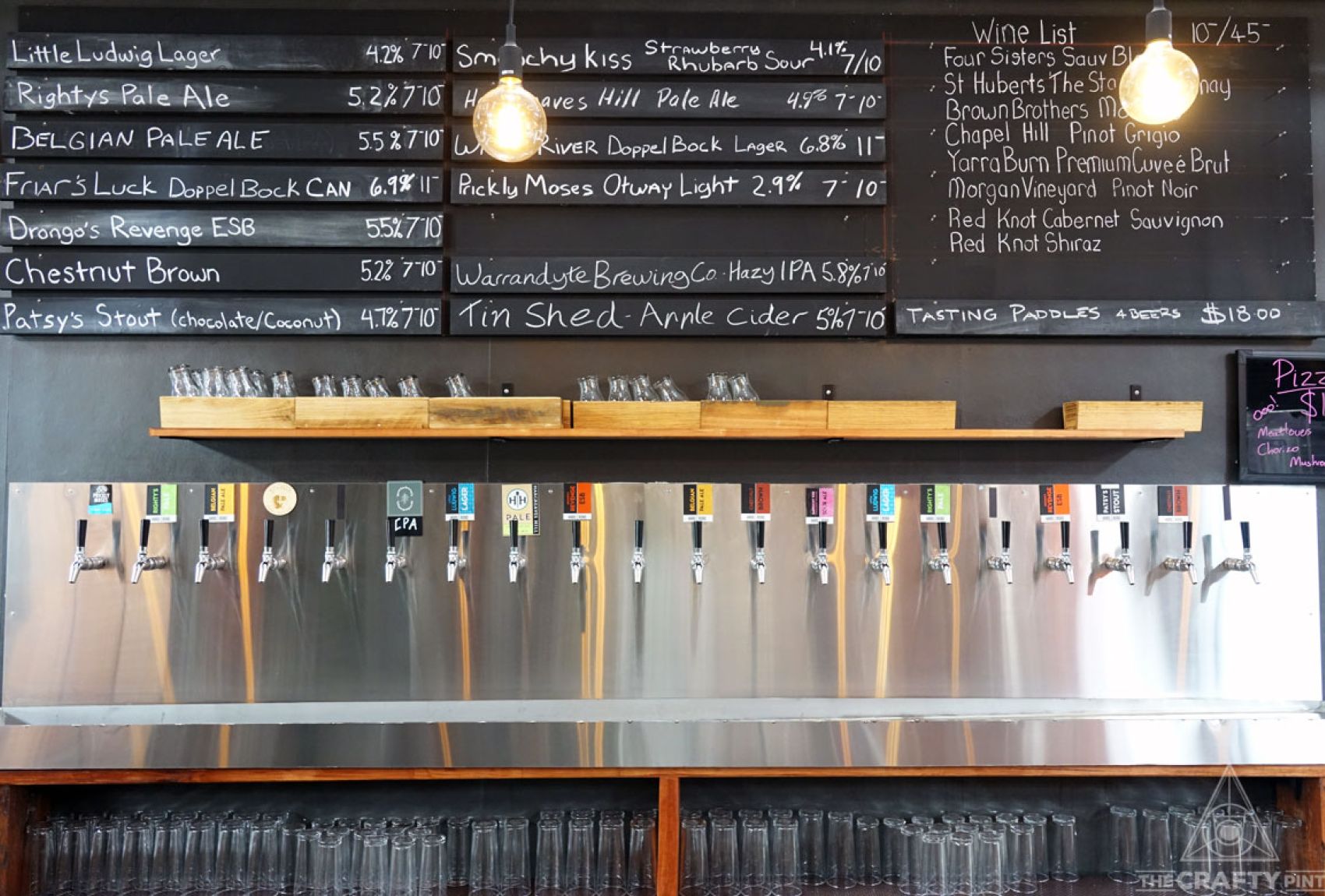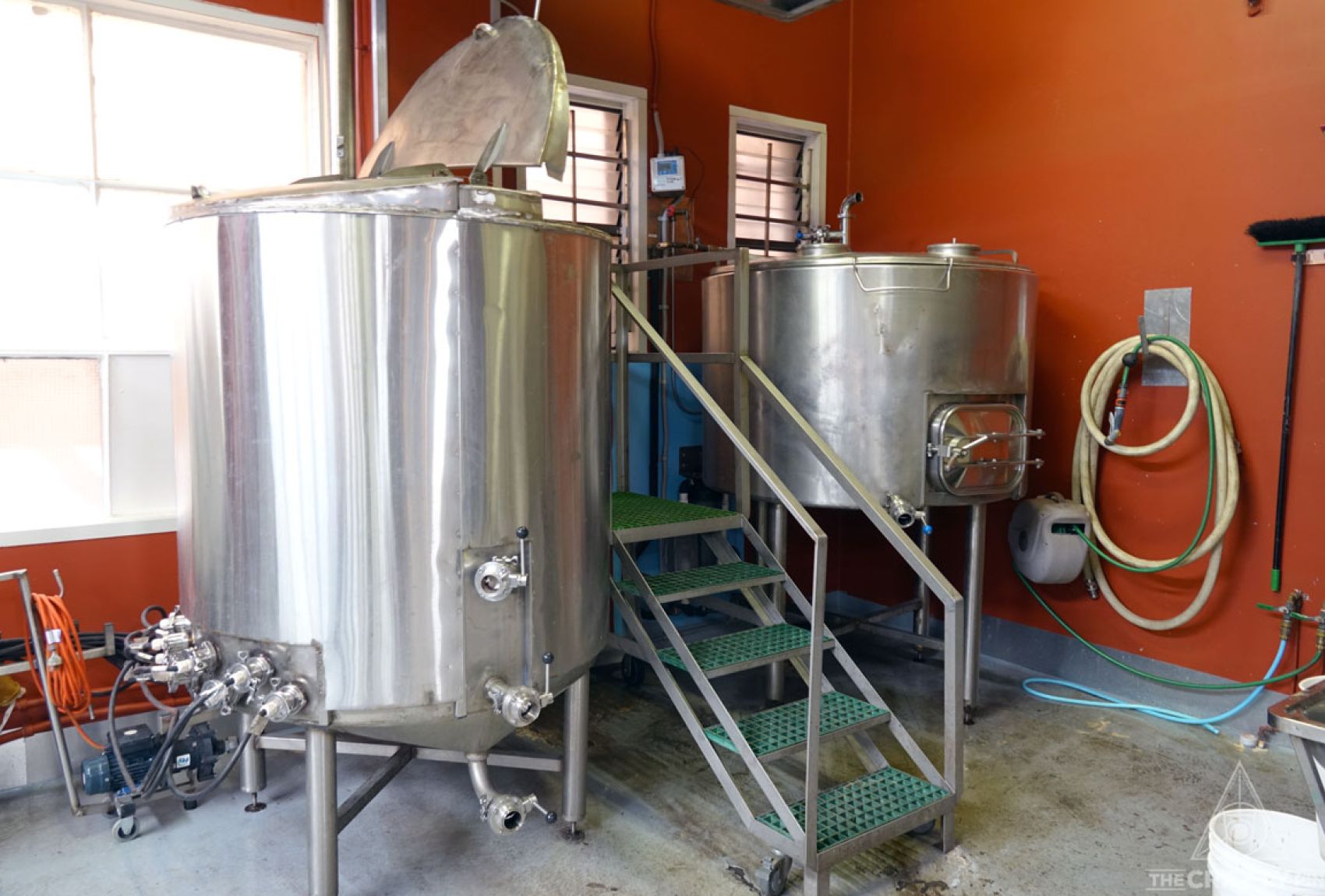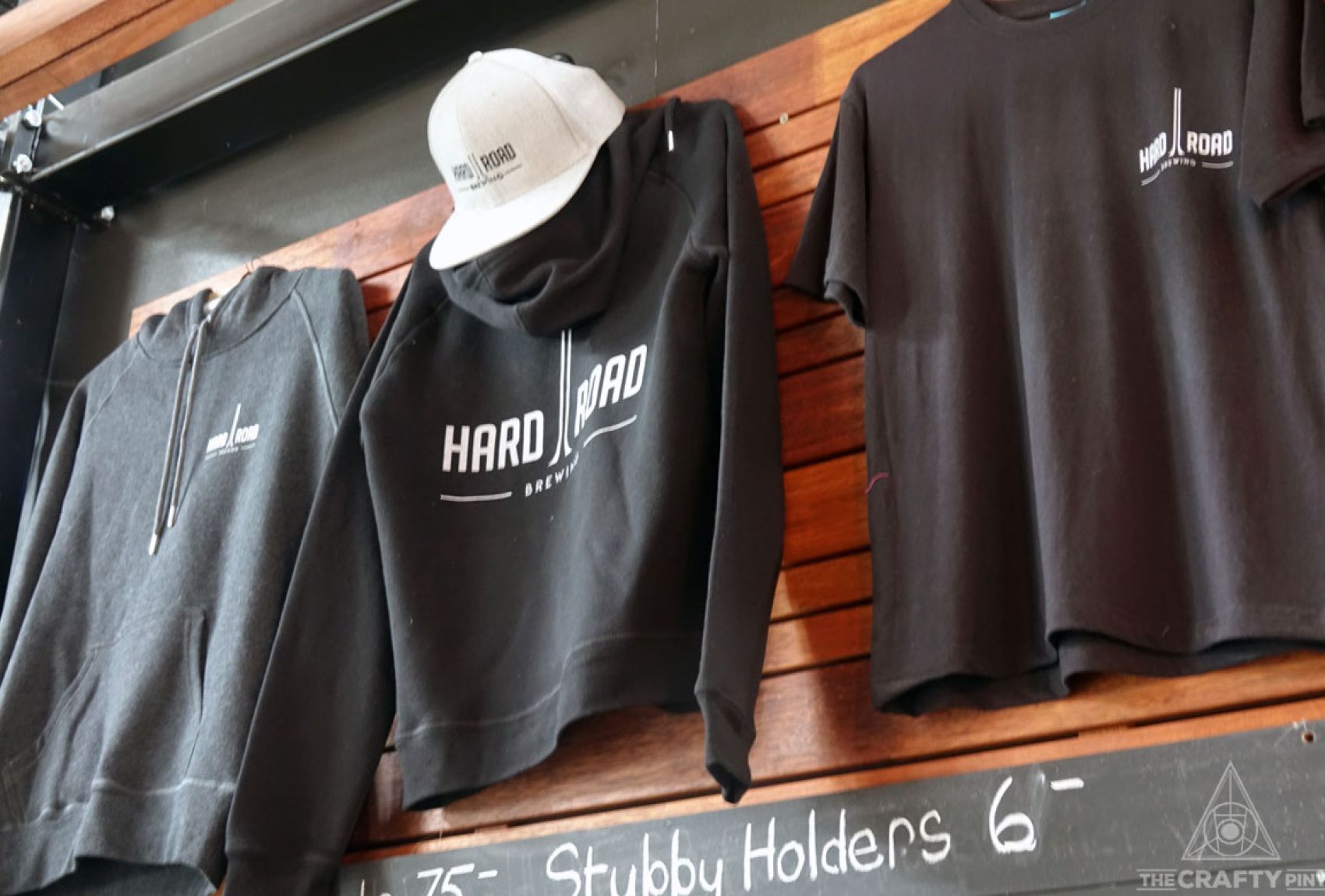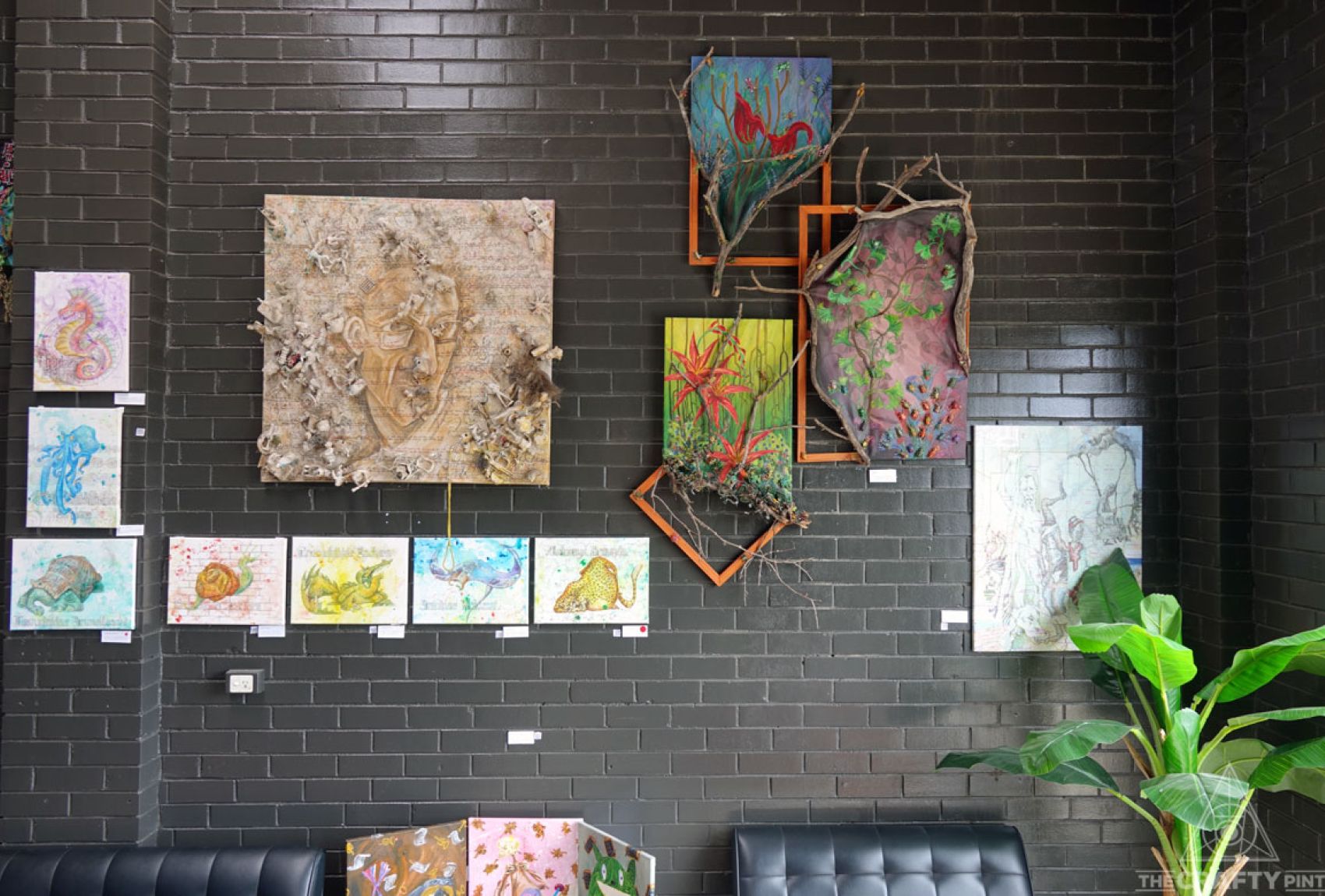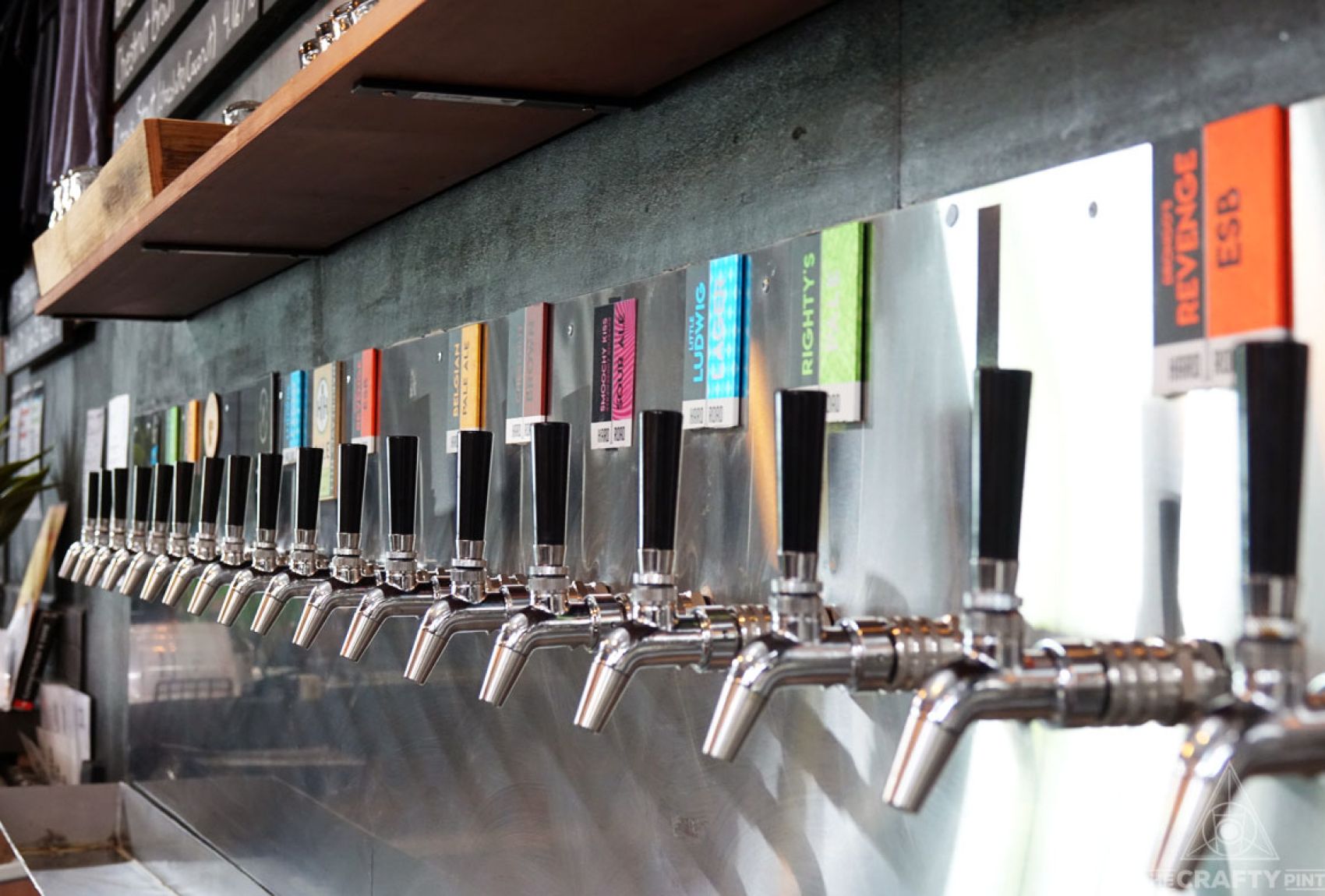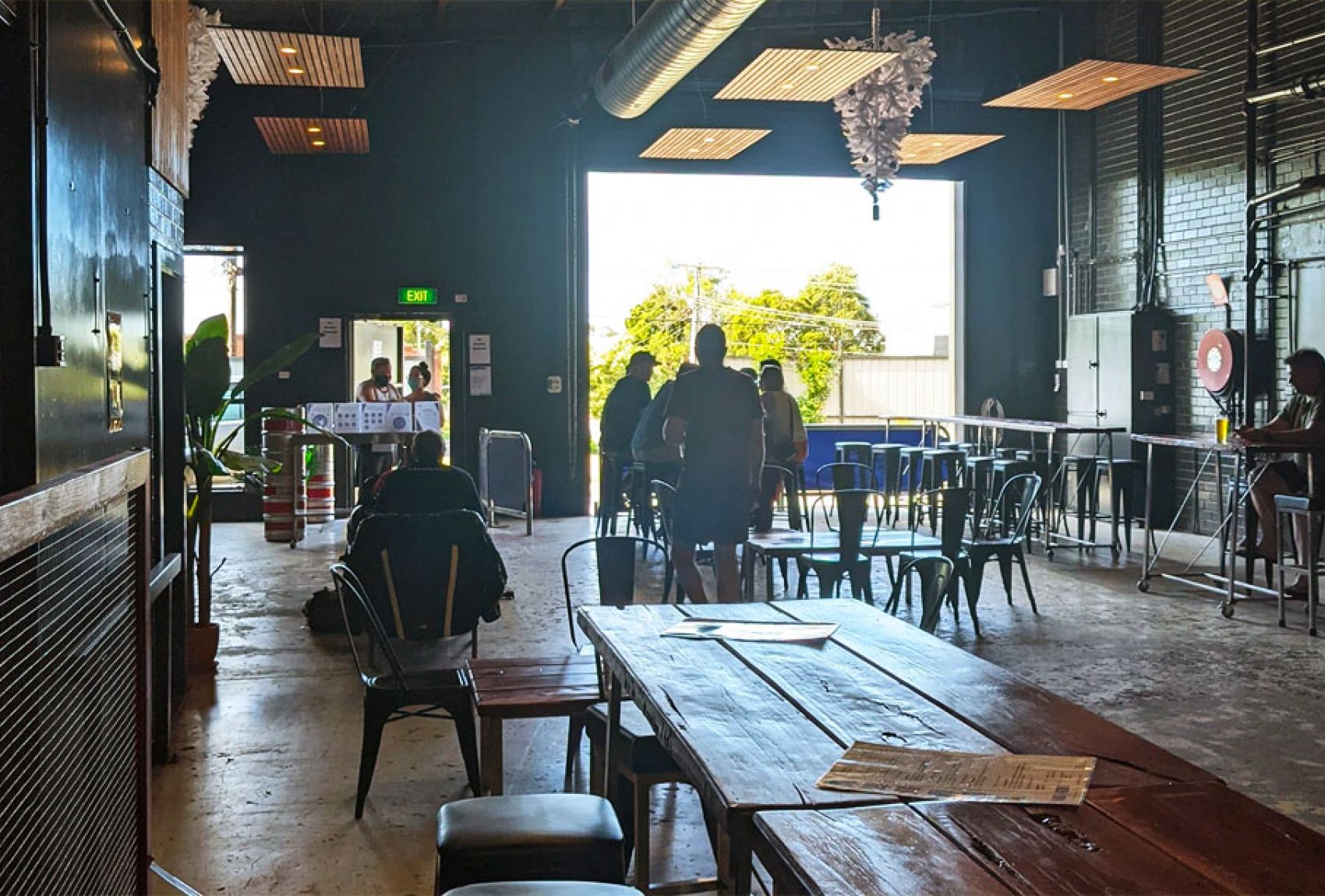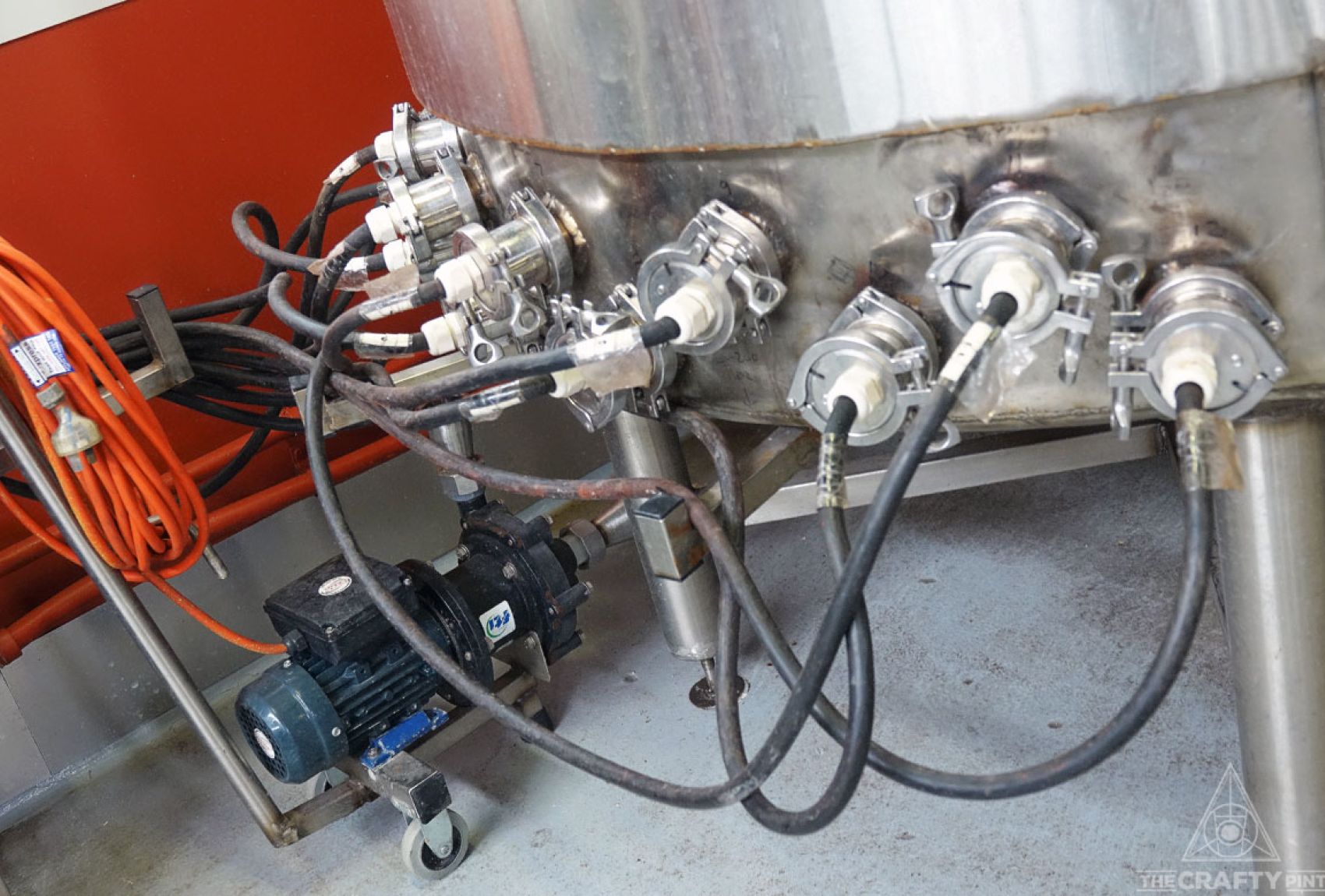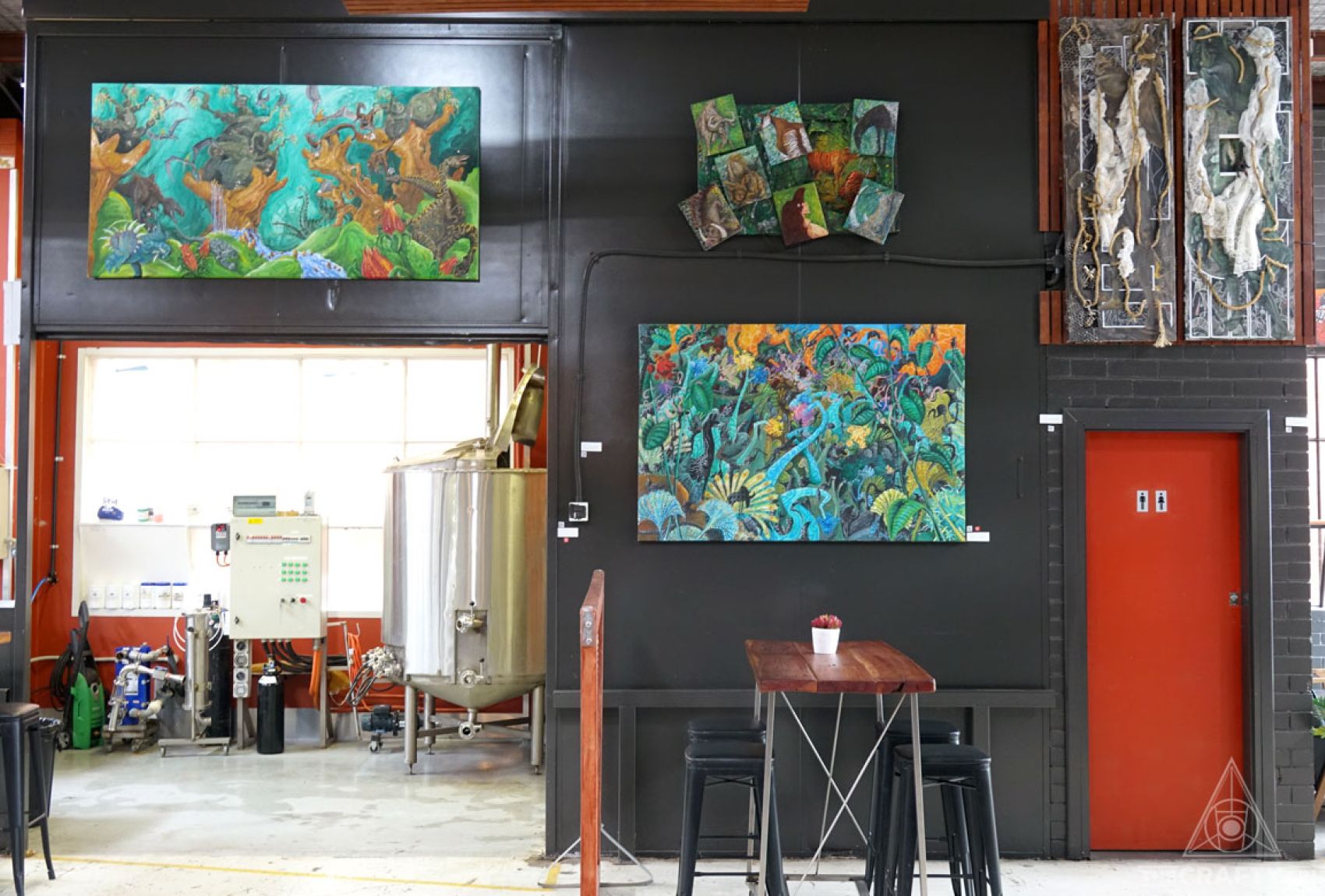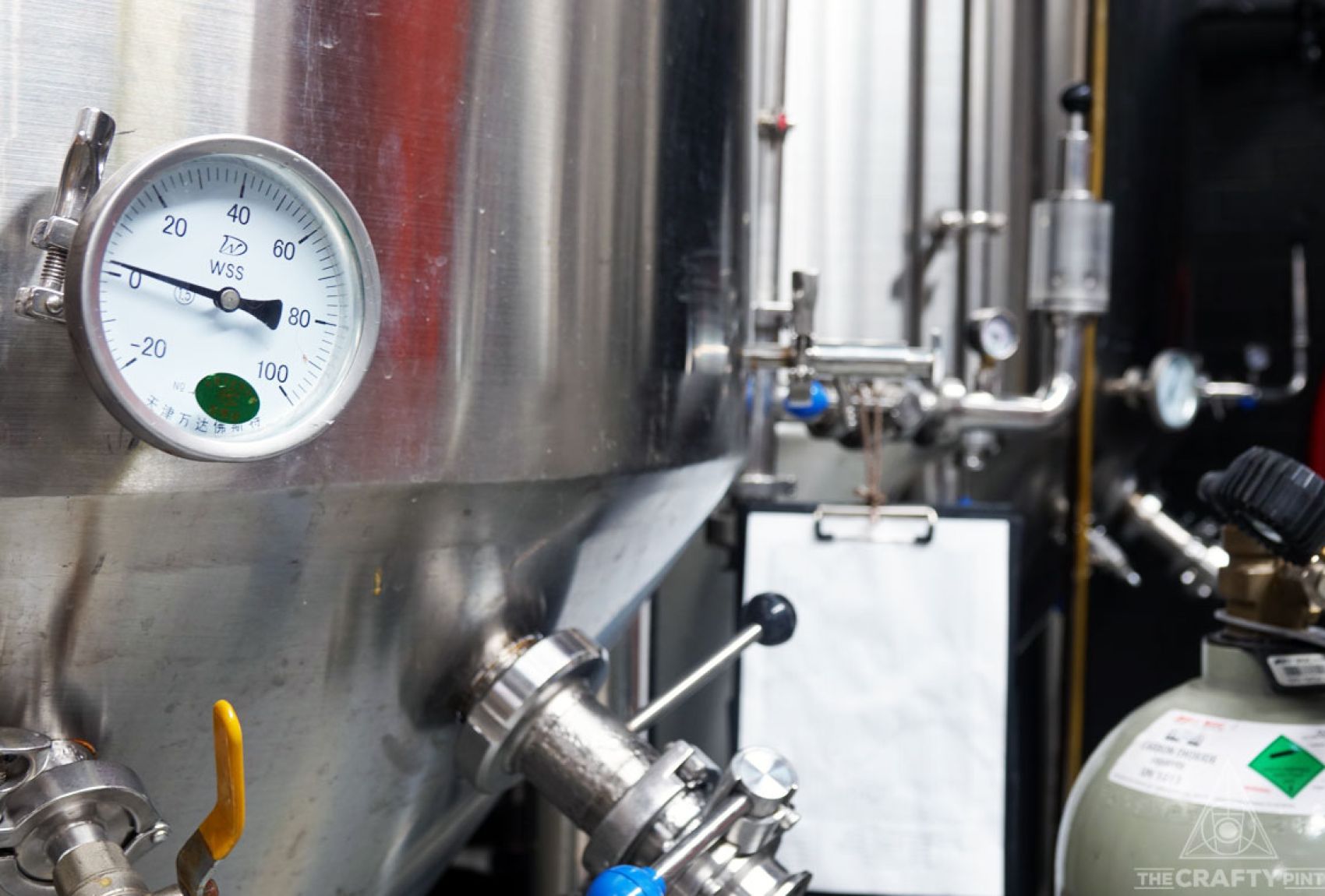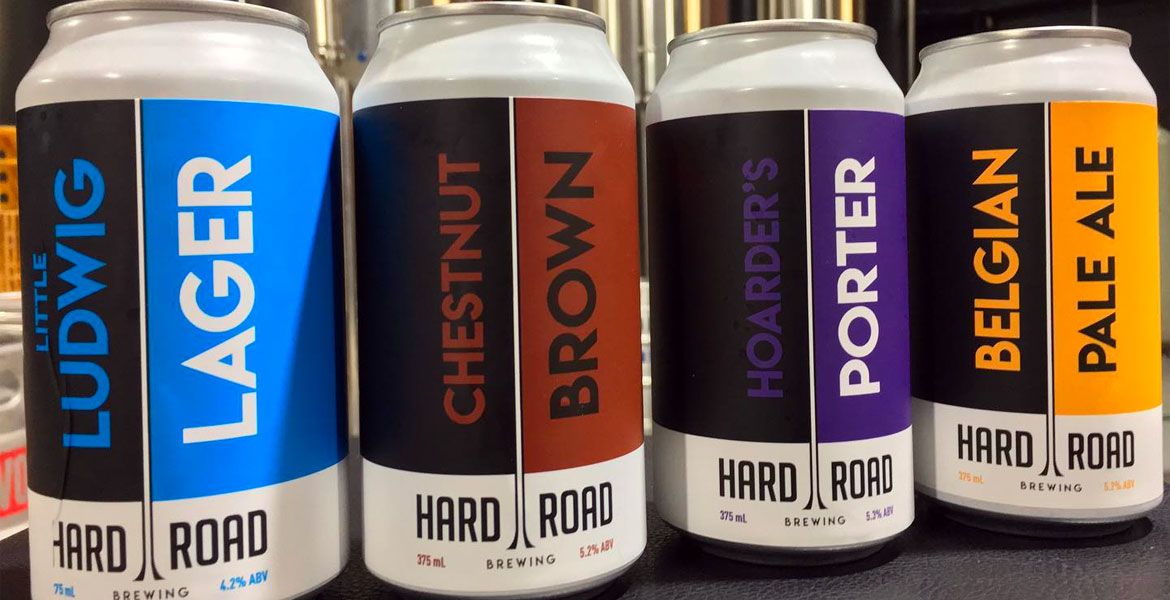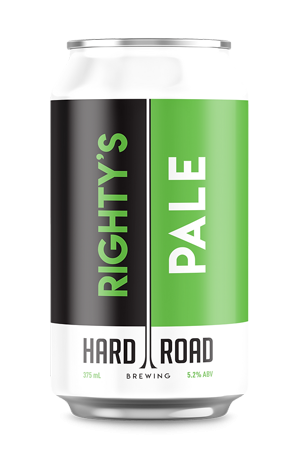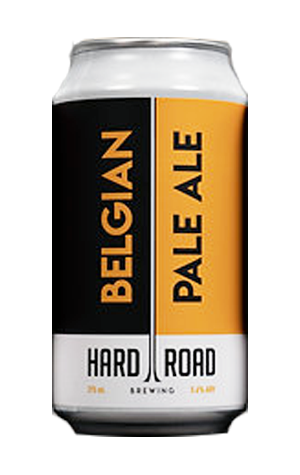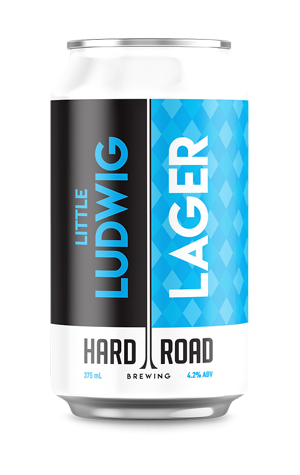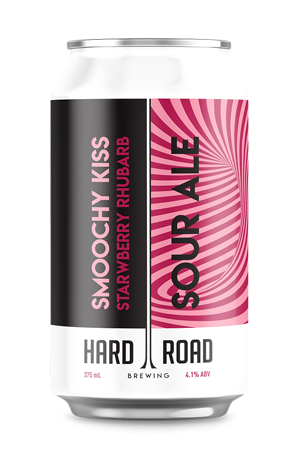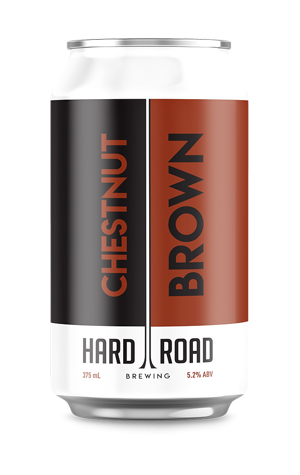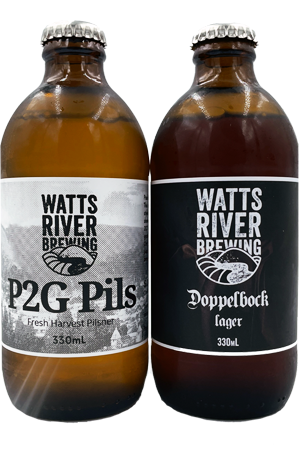At one point during our chat at their brewery taproom in Melbourne’s east, Lein Jenkins points out how surprised he and wife Angie were to discover the name “Hard Road” hadn’t already been taken by another brewing company. If you’ve spent time in and around the beer world, you’ll understand why they’d have felt that way.
Even before the global pandemic introduced an unforeseen level of turbulence to the beer industry and those with which it’s intrinsically linked – hospitality, events, travel – nobody launched a small brewery thinking it was going to be a walk in the park. Or, if they did, they were likely to be disabused of the notion rather quickly. But for the trans-Pacific couple – Lein hails from California, Angie from Victoria – their road to launching Hard Road had been a particularly long one, even before COVID arrived.
When it comes to actual brewing, you could argue Lein had been preparing for his days as a commercial brewer longer than the vast majority of breweries have existed in Australia. Both Lein and Ange had been avid homebrewers in California after falling in loving with the art of making beer at a homebrewing festival; the local options for them to measure themselves against were none too shabby either, given the likes of Stone, Rogue and Pizza Port were rapidly building upon the platform laid down by Sierra Nevada.
Discussions around launching their own brewery – inspired by the couple’s experiences within the beer community in California – were also underway before they made the decision to move to Victoria in 2012.
So when Lein – who had Australian residency and had previously completed a Bachelor of Science down under – was “sold” as part of a deal when the company for whom he worked as an environmental consultant acquired a smaller operation in Australia, the wheels were put in motion. Angie started working in earnest on plans for a brewery – one that first took shape as Caltoria Brewing.
Determined to do everything under their own steam – no bank loans or outside investors – they built everything they could with their own hands. They also funded everything from their own pockets and started brewing on a suitably idiosyncratic kit in part of a Bayswater warehouse owned by drilling company Matrix – an arrangement that came about thanks to a chance meeting with owners Mike and Pete, who had a shared passion for beer and mountain biking.
Three years without a holiday followed as they looked to build Caltoria, with Lein and Ange investing every spare moment outside their day jobs into the brewery, while starting a family at the same time. All of which can probably now be described as the preamble to their real career as commercial brewers, because in 2018 an opportunity presented itself that was pregnant with both risk and reward.
The drilling company’s owners told the couple they’d outgrown the space and were moving to a bigger location. Lein and Angie had two choices: take over the entire warehouse, or up sticks and find a new home.
Given they were on a slow and steady growth trajectory, making the leap from a small production-only brewery to leases of a 700 square metre warehouse was significant, but one they chose to make. It was also the period in which Caltoria – a name derived from their respective home states, California-Victoria – was to become Hard Road, and when they first brought in some outside assistance.
Mike and Pete came in as silent partners, with the latter coming up with the name Hard Road. Also coming into the picture was Brad Merritt, who shared much in common with Lein: he was a fellow Californian, had immersed himself in America’s craft beer culture before moving to Victoria, and had opened one of the country’s earlier craft beer bars, Oscar’s Alehouse in Belgrave. He had also launched his own hop farm and associated brewing company in nearby Yellingbo, meaning he’d not only bought Caltoria beers for Oscar’s but had also brewed some of his beers on their kit.
With his hospo experience added to the team, over a six-month period the former home of a drilling company became a full-blown brewery taproom, with a newly-installed cool-room tucked behind a 20-tap bar, space aplenty for guests, including a kids corner and foosball table, and an expanded brewery ready to roll after Angie travelled to China to oversee the manufacture and delivery of more fermenters.
Seven years on from their move to Victoria, and having tested the waters of pro-brewing as well as Lein’s recipes on the local market, they were ready to step up. The date on which they opened the doors to the public for the first time? November 2019. Well, nobody said the hard road had to end right away…
Courtesy of COVID, they were only able to open as a venue for four months in their first two years, while Brad missed out on harvesting a hop crop in 2021, and risked losing another in 2022, so left Hard Road to concentrate on Yellingbo again.
On the plus side, grants on offer to support impacted businesses allowed them to upgrade and expand their brewery. They moved into cans, and honed their ability to move fast and be flexible, becoming adept at adjusting production from the times when all that was required was enough beer to keep things ticking over, to those when they needed to brew like mad to catch up as restrictions and rules changed once again.
All of which means they view 2022 as their ground zero. And is also a lot of words to write before even talking about their beers, which form one of the most distinctive core ranges in Australia.
Given he honed his brewing skills creating, for the most part, IPAs as a homebrewer, while enjoying also IPAs from the likes of Ballast Point, Stone and Sierra Nevada, you might expect such beers to feature heavily. Yet the intention from their Caltoria days on has been to fill some glaring holes in the market. Why add yet another IPA to bottleshop fridges when some breweries are releasing dozens of them a year?
So, while there’s a lager and pale ale on offer year round, the other permanent fixtures are a Belgian pale ale, an English ESB, and a chestnut brown ale. Sure, you’ll find IPAs, sours and more if you visit the taproom, but the aim is to look after those drinkers left behind by hops’ takeover over the local craft beer world.
At time of writing, around 60 percent of everything they brew is sold through the brewery, although an upgrade to their highly manual, labour intensive canning machine will help them boost their packaged presence. Of the remaining 40 percent, the majority is distributed through Melbourne’s south-eastern suburbs, something that’s in keeping with their “support local” mindset.
This pocket of Melbourne’s outer east might not offer the sort of density of breweries as, say, the Collingwood-Abbotsford-Richmond nexus, yet there’s still a vibrant network of local brewers and other small producers looking out for each other. On the beer front, the likes of Project Brewing, Hop Hen, Hargreaves Hill and Killer Sprocket are all just a short cab ride or drive away, and you’ll always find a handful of beers and ciders from such neighbours pouring at Hard Road’s taproom.
That ethos suffuses other aspects of the business too. On the food front, call in on Thursdays and Sundays and you can tuck into pizzas sourced from a local bakery; on Fridays and Saturdays they welcome a rotating lineup of local food trucks that could be slinging anything from tacos to Indian-inspired treats. And as soon as you walk through the door, it’s impossible not to notice the artwork adorning the black-painted brick walls, with the venue acting as a permanent showcase of local artists.
It might have taken them rather longer to reach this point than they expected, or hoped. The road has undoubtedly been even harder than they could have envisaged when they changed names back in 2019. And the fact they now operate a spacious 20-tap venue feels as much a case of happenstance than intent. Yet you don’t get to such a point without putting in the hard yards, not to mention having drive and vision.
What’s more, you can’t help but suspect that, having navigated the hard road for so long and done so genuinely independently, the future for Angie and Lein should be plain sailing. Well, relatively, at least.
James Smith



